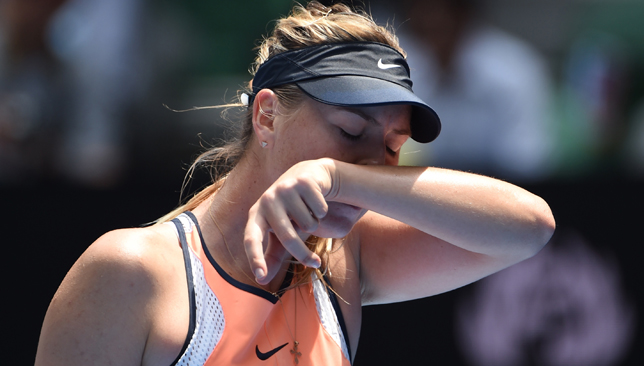
Maria Sharapova is “determined to fight back” against what she deems misreporting after denying she missed five warnings that meldonium was becoming a banned drug.
The Russian tested positive for it following her quarter-final defeat to Serena Williams at the Australian Open.
The International Tennis Federation and WTA alerted players five times in December to the banned list for 2016.
In her dramatic press conference last Monday, Sharapova only mentioned failing to click on a link on an email linking to the documents on December 22.
And she insisted the other missed opportunities were not ones she could necessarily have been expected to take, posting a picture of a complicated “wallet card” detailing banned substances.
New statement from Sharapova, who wants to set the record straight about several details pic.twitter.com/dkwd5O6xDF
— Reem Abulleil (@ReemAbulleil) March 11, 2016
The 28-year-old wrote: “This document had thousands of words on it, many of them technical, in small print. Should I have studied it? Yes. But if you saw this document, you would know what I mean.
“I make no excuses for not knowing about the ban. I already told you about the December 22, 2015 email I received. Its subject line was ‘Main Changes to the Tennis Anti-Doping Programme for 2016’. I should have paid more attention to it.
“But the other ‘communications’? They were buried in newsletters, websites, or handouts.”
As an example, Sharapova cited an email on December 18 that would have required clicking through a number of links to find the information.
However, this email was not one of the five warnings cited by the ITF and WTA.
Sharapova, who knew the drug as mildronate, also addressed comments from the manufacturer that it was only designed to be taken in courses of between four and six weeks.
That has been cited by some as suspicious given the Russian said she had been taking it, as prescribed by her doctor, for 10 years.
But she indicated she had only used it intermittently, in line with the manufacturer’s guidelines, saying: “I didn’t take the medicine every day. I took it the way my doctor recommended I take it and I took it in the low doses recommended.”
Sharapova will have a chance to put her case forward at a preliminary hearing later this month before an independent tribunal hears the case and decides on possible sanctions.
The Russian added: “I’m proud of how I have played the game. I have been honest and up front. I won’t pretend to be injured so I can hide the truth about my testing.
“I look forward to the ITF hearing at which time they will receive my detailed medical records. I hope I will be allowed to play again. But no matter what, I want you, my fans, to know the truth and have the facts.”